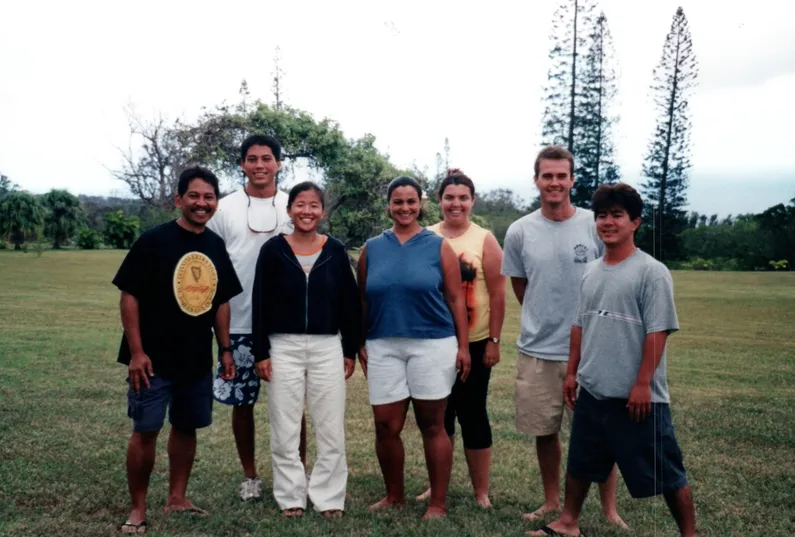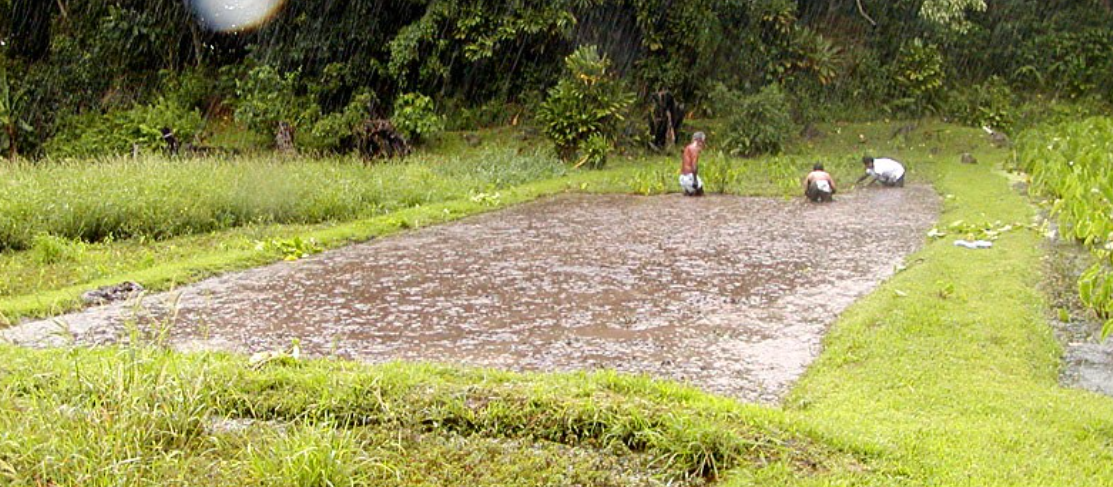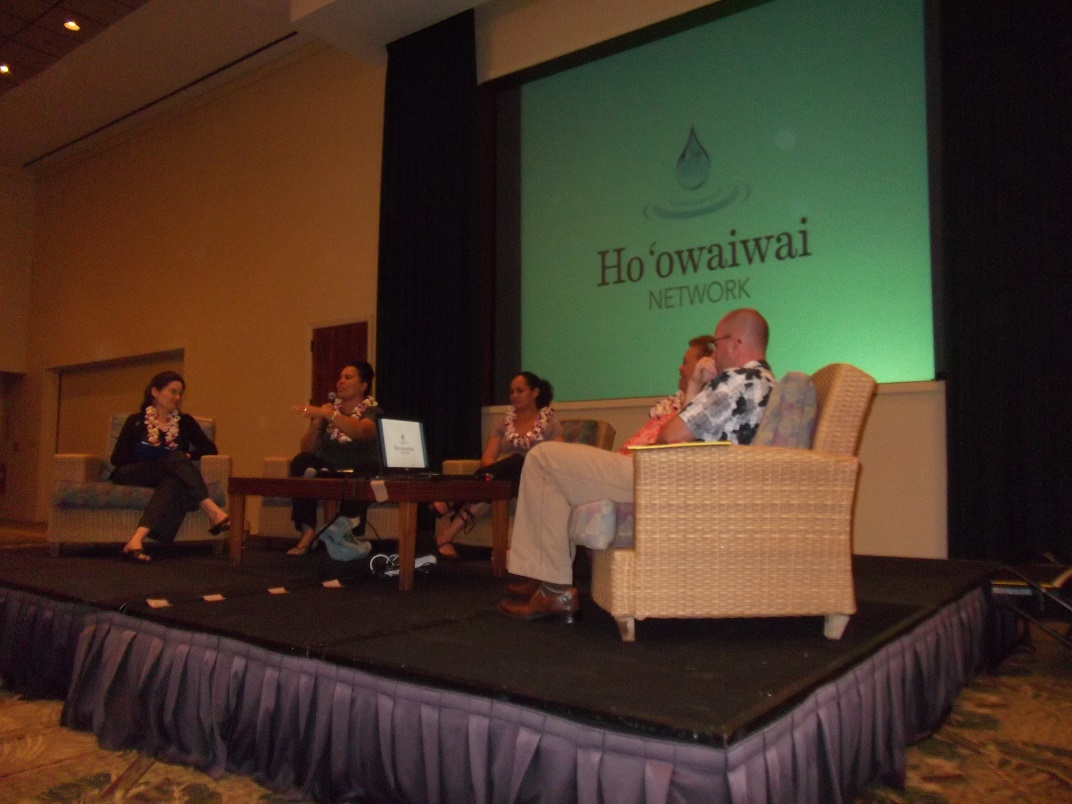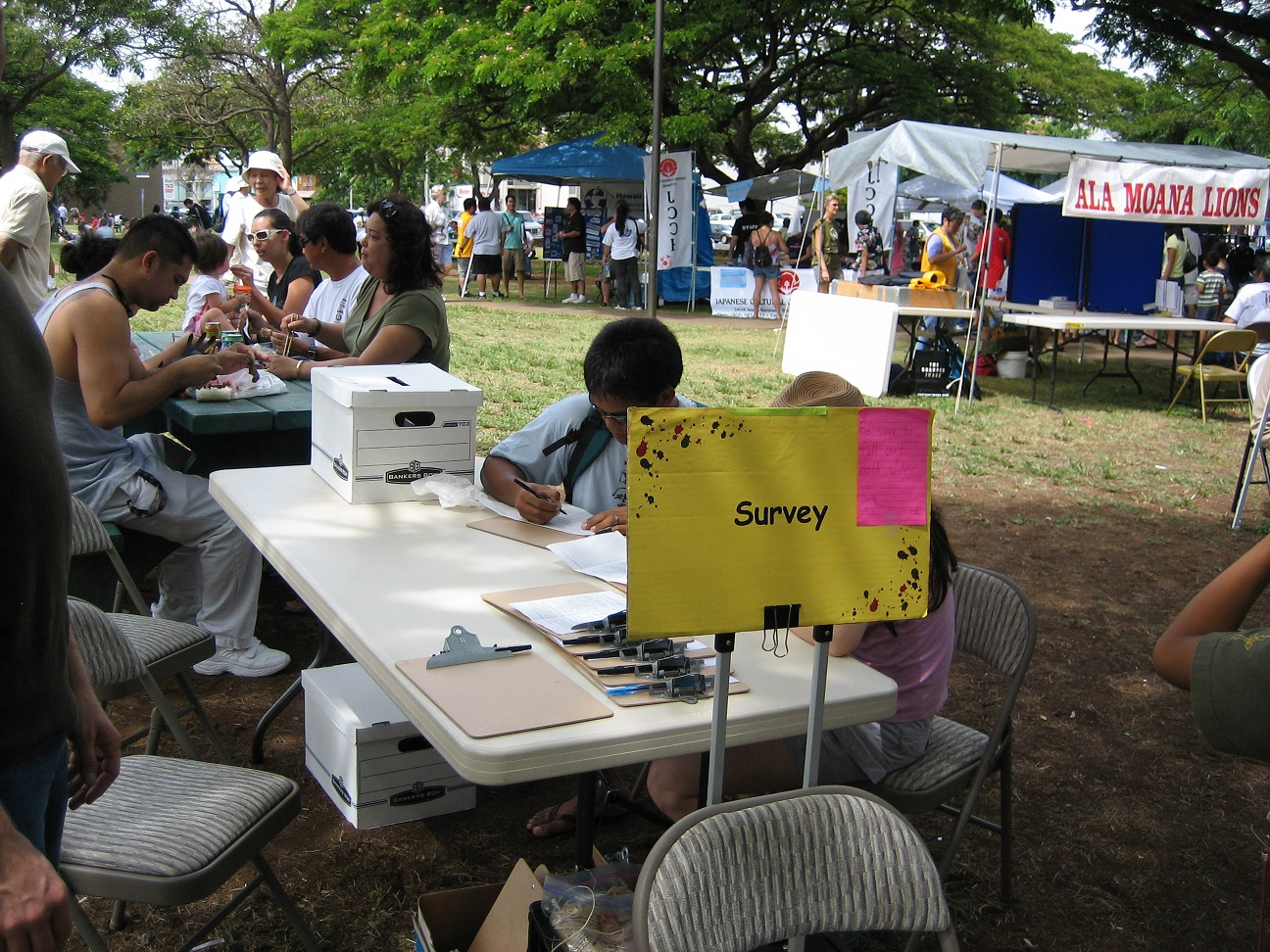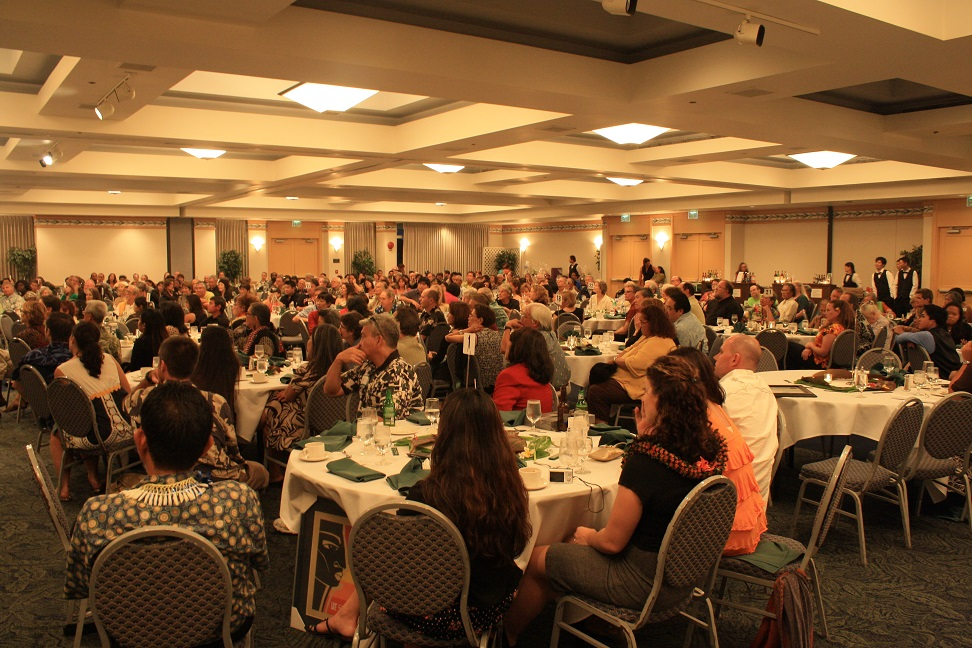HACBED developed a body of information, experience, and expertise to support the field of community-based economic development and asset building in Hawaiʻi by:
- Providing organizational capacity development support to grassroots organizations involved in CBED and asset building across the state and elsewhere.
- Supporting community-based organizations through training, workshops, coaching, technical assistance, and other support services.
- Implementing field building strategies to improve the environment in which community-based organizations must operate in Hawai‘i.
- Sitting, talking story, and listening to capture, synthesize, reflect, and sometimes translate the vision and ideas of community members.
HACBED’s focus and scope of work was in the following areas:
Community & Organizational Capacity Building
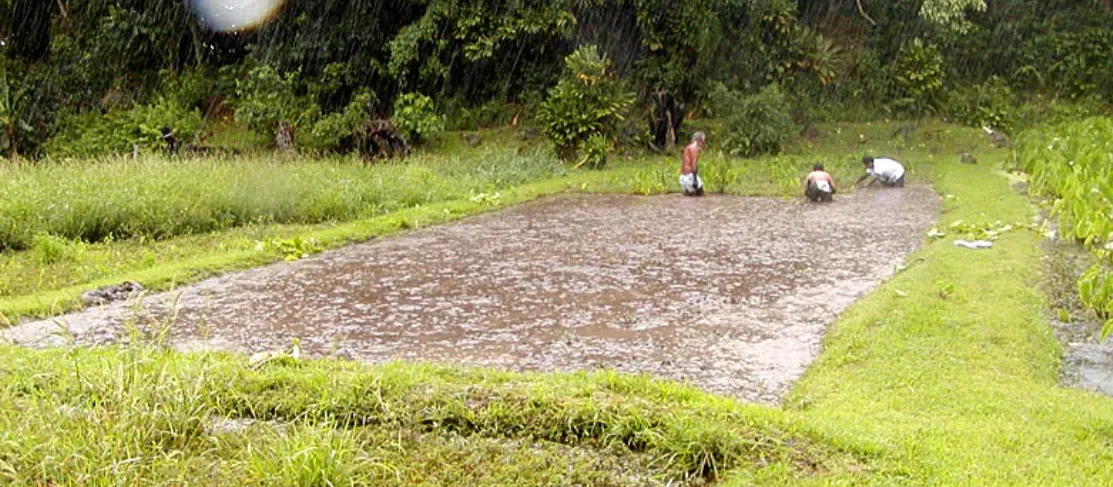
Organizational assessments (diagnostics), strategic thinking and planning, community economic development training and technical assistance, and executive coaching to assist communities and non-profit organizations in building the capacity needed to plan, implement, and sustain community-based economic development and other asset building ventures. This work includes:
- Compassion Capital — Hawaiʻi Moving Forward. Work for the Hawaiʻi Community Foundation, University of Hawaiʻi – Center On The Family, and Hawaiʻi Island Ministries to conduct organizational assessments of organizations involved in the various cohorts of the Compassion Capital Program from 2003 to 2008.
- Geist Foundation — Organizational assessments of 14 foster care organizations.
- Compassion Capital — Organizational assessment conducted for youth servicing organizations that were members of the Hawaiʻi Youth Services Network’s Compassion Capital program.
- Department of Hawaiian Home Lands — As part of its Kulia I Ka Nu‘u program, HACBED provides organizational assessment support, training, and technical assistance for Hawaiian Homestead organizations on all islands.
In the same period, HACBED has also provided technical assistance to more than 30 community-based and CBEDOs for strategic planning, feasibility analyses, and business planning. Examples of this work include:
- North Shore Community Land Trust (NSCLT) — On Oʻahu. Using analyses of current work and on-island climate, HACBED staff members assisted the NSCLT in updating their strategic plan to guide the organization’s short and long-term actions.
- Hoa ʻĀina O Mākaha — In Mākaha, Oʻahu. HACBED worked with Hoa ʻĀina to support its organizational sustainability, leadership development, and emerging partnerships.
- Molokaʻi Homestead Farmers Alliance (MHFA) — HACBED assisted the MHFA with business planning services, specifically for the repair of the Lanikeha Center in Hoʻolehua, Molokaʻi.
- Nā Kūpuna A Me Nā Kākoʻo O Hālawa — In Hālawa Valley on Oʻahu. Over the past year, HACBED has provided facilitation and technical support for strategic planning, board development, operational support, and development of a sustainability plan
- Waiohuli Hawaiian Homesteaders Association — On the island of Maui. Conducted stakeholder interviews and feasibility analysis for place-based and culturally relevant opportunities for the use of a soon-to-be constructed community center and commercial kitchen.
- Hoʻoulu ʻĀina — Kōkua Kalihi Valley in Kalihi Valley on Oʻahu. Conducted feasibility analysis for culturally appropriate venture development concepts for the 100 acre Hoʻoulu ʻĀina Nature Preserve of Kōkua Kalihi Valley that provides comprehensive family services and operates the Charles Judd Community Health Center.
- Hui No Ke Ola Pono — Conducted an organizational assessment and strategic planning process for this Maui based nonprofit organization that is part of the statewide Native Hawaiian Health Care System.
- Ke ʻAnuenue Area Health Education Center Inc. — Conducted a strategic planning process for this Hawai‘i Island based nonprofit.
- Waipā Foundation — Feasibility analysis and business planning support was provided to Waipā Foundation for implementation of components of its master land use plan for its 1,600 acre ahupuaʻa.
- Hālau Kū Māna Strategic Plan — Organized and executed strategic planning process for HKM, a Hawaiian-focused public charter school in Makiki that serves students from 4th through 12th grades.
- Going Home Hawai’i Island Strategic Plan — Provided strategic planning services to Going Home Hawai’i, a consortium of over 50 public and private entities currently totaling over 250 members dedicated to the reintegration of former offenders and formerly incarcerated individuals.
- Kahua Paʻa Mua: Hoʻokahua ʻAi Mentorship Program — HACBED served as the Project Evaluator for Hoʻokahua ʻAi. HACBED team members coordinated data collection and analysis, interviews, report-writing, and other evaluation-related activities, allowing KPM staff members to dedicate more time to project participants. HACBED’s experience in capacity building and other technical assistance services has allowed for continuous improvement of the program’s operations.
- Mala Ai ʻOpio (MAʻO) — On the Waiʻanae Coast of Oʻahu. HACBED has provided facilitation and technical support to MAʻO for organizational assessments, strategic planning, and design and implementation of a statewide conference on community food security.
Other examples of HACBED’s community and organizational capacity building to support networks of organizations include:
- The Hoʻohiapo Network — A network which included faculty members of Hawaiʻi high schools, support service providers, and community-based organizations, and aimed to lift-up indigenous approaches to education and youth development. HACBED conducted a significant amount of engagement with high school campuses; facilitated and coordinated activities; and participated in collaborative grant writing, evaluation, and the creation of final reports for this project.
- One ʻOhana: Food and Housing for All — In collaboration with the Office for Social Ministry, HACBED provided technical assistance and support to the 66 Catholic parishes of Hawaiʻi, exploring the transition of their food ministries from an “emergency food” mindset to a more sustainable, nutritious, and community-based approach.
- East Hawai’i Ulu Planting & Intercultural Sharing Program — In late 2014, HACBED and Sacred Heart Catholic Church in Pāhoa conducted community asset mapping exercises for the Pāhoa area. Widespread limitations in transportation and access to land quickly became apparent. These problems have made the preservation of ancestral practices difficult, both among migrant and native populations. Most starkly affected are these groups’ traditional food production techniques. Thus, with the help of many collaborators and support from the Laura Jane Musser Fund, HACBED created the East Hawaiʻi ʻUlu Planting and Intercultural Sharing Program. Intended to increase both transportation and common access to community and parish land, the project is providing open, inclusive, and culturally-grounded gatherings and shared areas for the expression of cultural knowledge.
- Hawaiʻi Community Foundation & Hawaiʻi Tourism Authority — Conducted a strategic dialogue process with the advisory groups that make up HTA’s Natural Resources & Kukulu Ola: Living Hawaiian Culture Programs to inform the new partnership in which HCF will administer the two grantmaking programs for HTA.
- Kupaianaha — Through a contract with the State of Hawaii Office of Planning, HACBED’s efforts helped to encourage and guide investment by the private sector and government agencies in culturally, socially and environmentally compatible economic development projects and strategies in and adjacent to native Hawaiian homestead communities throughout the state of Hawaii.
- The Community Connection — A nine month training and technical support program conducted by HACBED for CBED organizations that are planning and/or implementing economic ventures was held in 1994, 1996, 2000, 2001, 2002, 2003, and 2006. More than 320 grassroots CBED leaders from over 150 CBED organizations from all islands have participated in CommConn. Some of the primary sponsors of The Community Connection have included the State DBEDT, Office of Hawaiian Affairs, Bank of Hawaiʻi, American Savings Bank, Hawaiʻi Community Foundation, the City & County of Honolulu, the County of Hawaiʻi, the Wallace Alexander Gerbode Foundation, the National Rural Funders Collaborative, and the Kosasa Family Foundation.
- Schools Of The Future — Through a contract with the Hawaiʻi Community Foundation and in partnership with the Hawaiʻi Association of Independent Schools, HACBED provided facilitation and technical support for learning circles being formed in and between the 20 schools chosen to be part of HCF’s Schools Of The Future
- Youth Matters Network — Through a contract with the Hawaiʻi Community Foundation, provided facilitation and technical support to establish and conduct learning circles for 18 nonprofit youth serving organizations in the YMN.
- Workshops & Trainings — Workshops and trainings have been organized and conducted on such topics as microenterprise development and lending, Individual Development Accounts (IDAs), the Community Reinvestment Act, commercial real estate development for nonprofits, developing and managing food processing business incubators, systems thinking, media – communicating values and shaping opinions, fundamentals of nonprofit management, nonprofit organizational assessment, and others. In 2000, HACBED was awarded the Niu Award from Volunteer Legal Services of Hawaiʻi for nonprofit training.
- County of Hawaiʻi Department of Research & Development — Designed and implemented a leadership development training collaborative for nonprofit and community based groups on Hawaiʻi Island through a contract with the County of Hawaiʻi.
- Department of Hawaiian Home Lands — Through a contract with DHHL, HACBED conducted a 7 month capacity building training and technical assistance program for 35 Hawaiian Homestead Associations from across the State.
- Editorial Board & Board of Directors of The Nonprofit Quarterly — In 2001, HACBED was appointed to the editorial board of The Nonprofit Quarterly, a national publication for the nation’s nonprofit sector, and was also a founding board member of the Nonprofit Information Networking Association that publishes the Quarterly.
- Field Building Consulting Services — Based on its organizational assessment, strategic planning, and organizational capacity building work, HACBED has provided field building services for organizations in such areas of interest as faith-based organizations, and foster care. Citibank and the National Alliance for Nonprofit Management also contracted HACBED to provide a field building workshop to Asian and Pacific Island CBED organizations from California and Florida.
- Hawaiʻi VITA & Financial Empowerment Program — HACBED provided free tax assistance to low-to-moderate income Hawaiʻi residents from 2006 to 2016. In that period, we saved over 32,000 Hawaiʻi taxpayers more than $5.8 million in tax preparation fees.
- Hinaʻi: Hawaiʻi Center for Sustainable Food & Agriculture — Having grown from community engagement opportunities, this Network increased food security and experiential and place-based education opportunities, ultimately aiding the restoration of ancestral abundance and pathways for self-governance.
- Ho‘owaiwai Network Kohala Collaboration — Building on the work of network partners–including a diverse coalition of nonprofits, government departments, social service agencies, and businesses–HACBED worked to determine the feasibility of expanding and deepening the impact of the Hoʻowaiwai Network by conducting a planning process with support for potential pilots in collaboration with partners in North Hawaiʻi.
Family & Community Asset Building For Self-Sufficiency
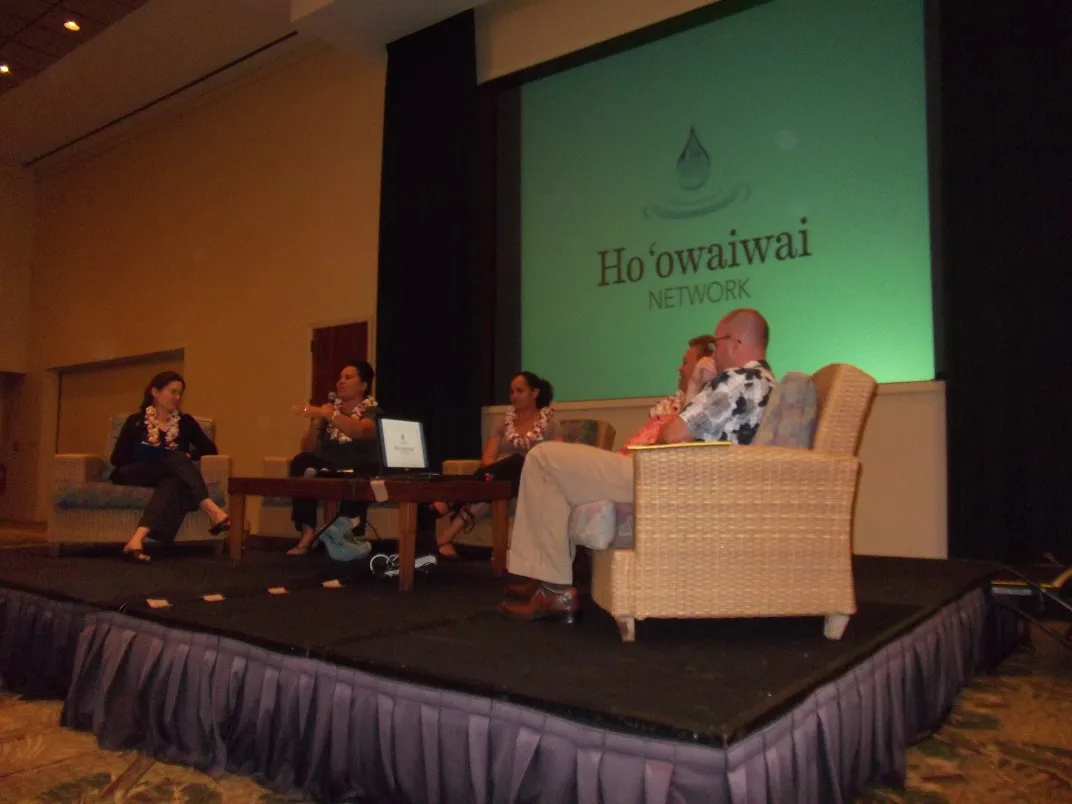
Developing policies and community practices around strategies that help individuals, families, and communities to build wealth/assets. These assets will then help them to become self sufficient and develop increased opportunities that will allow them to exercise choice and control over their futures. This work includes:
- Hoʻowaiwai Network — The Hoʻowaiwai Network is a statewide coalition of over 130 members of private and public organizations, community practitioners, financial institutions, families, and youth in Hawaiʻi that organize actions to address asset poverty and build the wealth and financial stability of Hawaiʻi’s working families. Locally on Hawaiʻi Island, the Hoʻowaiwai Network is comprised of private and public organizations, community practitioners, financial institutions, and families and youth in Hawaiʻi that organize actions to address asset poverty and build the wealth and financial stability of Hawaiʻi’s working families. Hoʻowaiwai Network members work to build strategies and tools to increase family and community assets within the unique context of Hawaiʻi.
- Youth Savings Initiative: Kōkua Kalihi Valley — HACBED and Kōkua Kalihi Valley (KKV) partnered to offer the participants in their bike exchange program an opportunity to earn match savings and bonus cash incentives by attending a series of financial education and life skills workshops.
- Hawaiʻi Asset Building Conferences — HACBED and the statewide Hoʻowaiwai Network convened local and national asset building leaders for a statewide symposia in 2010 titled “Springboard To Prosperity: Building the Financial Stability, Wealth, & Well-being of Hawaiʻi’s Working Families” and again in 2012 titled, “Kahua O Ke Ola: Foundations for Prosperity”. Each symposium served as a space to share, collaborate, and discuss strategies and tools for action to increase family and community assets within the unique context of Hawaiʻi.
- Asset Building Task Force — Provided management and leadership support for the State Asset Building Task Force that was established by the State legislature to initially focus on universal children’s savings accounts, financial education, and eliminating asset limits.
- Hawaiʻi VITA & Financial Empowerment Program — This program of HACBED coordinated a statewide network of volunteer income tax assistance (VITA) sites and trains volunteers to provide free tax assistance to low income working individuals and families. In the 2015 tax season, FISSP assisted 5,748 workers across the state to file their taxes, saving them over $1 Million in fees and helping them to claim more than $14 Million in refunds and earned income and child tax credits.
- Publications — In partnership with 3Point Consulting and other partners, HACBED developed the publication Asset-Building Policy for Hawaiʻi that identifies six goals for a Hawai’i asset building policy agenda – make work pay; teach asset-building; break down barriers to asset-building; help people save; help people start and own businesses; and help people buy homes. In addition, One Step Forward, Two Steps Back-Policy Incentives & Deterrents in the Lives of Low Income Families was also produced. HACBED’s most recent publication, Asset Policy Roadmap: A Strategy For Advancing Financial Security & Opportunity In Hawaiʻi, was developed in partnership with the Corporation for Enterprise Development (CFED).
- County of Hawaiʻi’s Department of Research & Development — Development of the Asset Policy Roadmap for the County of Hawaiʻi.
- State Asset Leaders Learning Circle — HACBED represented the Hawaiʻi Asset Building Network in the 9 state Learning Circle that includes California, Hawaiʻi, Washington, Pennsylvania, Delaware, Texas, Illinois, Connecticut, and Michigan.
- Scorecard Partner — HACBED was chosen as one of eleven 2009-2010 Assets & Opportunity Established Asset Policy Coalition partners from across the nation to work with CFED on its national Assets & Opportunity Campaign.
- CBED Conferences — With support from financial institutions, government agencies, and CBEDOs, HACBED organized the 2004 CBED conference–“Families Defining Economic Success: Redefining Wealth & Poverty In Hawaiʻi” that laid the groundwork for Hoʻowaiwai–The Hawaiʻi Asset Policy Initiative.
- Public Policy — NRFC Policy Committee–HACBED served as a member of the National Rural Funders Collaborative policy committee for two years.
- State Asset Policy Research — HACBED is one of six state asset policy initiatives that was the focus of research supported by the Fannie Mae Foundation and is currently part of the on-going learning network comprised of the six state initiatives.
- Hawaiʻi Individual Development Account Collaborative (HIDAC) — HACBED served as fiscal sponsor and management agent for HIDAC, a collaborative of IDA practitioners and funders that provided restricted matched savings for low income individuals. Nearly 500 IDAs were opened; over $500,000 in participant savings amassed with an earned match of nearly $800,000; more than 73 small businesses were started or expanded, 49 participants became first-time homeowners; and 53 participants acquired a post-secondary education.
- National Rural Funders Collaborative — HACBED has been a part of NRFC’s (a collaborative of 12 national funders) learning network of 20 rural regional asset development collaboratives for the past 3 years. HACBED was also one of 6 teams chosen by NRFC to participate in the Aspen Institute and Annie E. Casey Foundation’s training institute for Rural Family Economic Success (RUFES).
- City & County of Honolulu Department of Community Services — Development of an Asset Policy Roadmap for the City & County of Honolulu.
- Assessment and Priorities for Health & Well-being in Native Hawaiians & Other Pacific Peoples — Alongside UH Manoa’s John A Burns School of Medicine and the Queen’s Health Systems, HACBED helped to research the considerable health disparities of Native Hawaiians and other Pacific Peoples (NHPP). The presentation summarizes data and findings from this work and informs synergistic efforts to achieve health equity for NHPP.
- Resources Match: Hawaiʻi County Office of Housing and Community Development (OHCD) — HACBED supported Hawaiʻi County OHCD’s management of Resources Match, an online tool developed by Mission Asset Fund and designed to connect low- and moderate- income individuals and families to community services and programs. Support included promoting and refining the program’s pilot on Hawaiʻi Island with partner agencies across Hawaiʻi. HACBED partnered with these resources to create over 100 new client profiles and referrals and held multiple trainings for service provider partners in Hilo and Kona.
As part of this work, HACBED has also managed and operated the Family Independence Initiative (FII) — An initiative to identify viable asset building policies and community practices that work to break the cycle of poverty. The initiative supported families taking initiative and developing their own pathways out of poverty in two ways:
- Through monetary awards and new connections, FII increases the economic and social assets of families that take the initiative to leverage their culture, values, and natural community to develop achievable paths out of poverty.
- As FII learns what actions families are taking to help themselves and others, we connect public, private and philanthropic sectors to these efforts and help to improve the programs and policies aimed at low income communities.
In less than two years, families in four communities on Oʻahu were able to achieve an 18% increase in their monthly household income; 75% increase in family net worth; and 377% increase in savings.
Community Based Planning
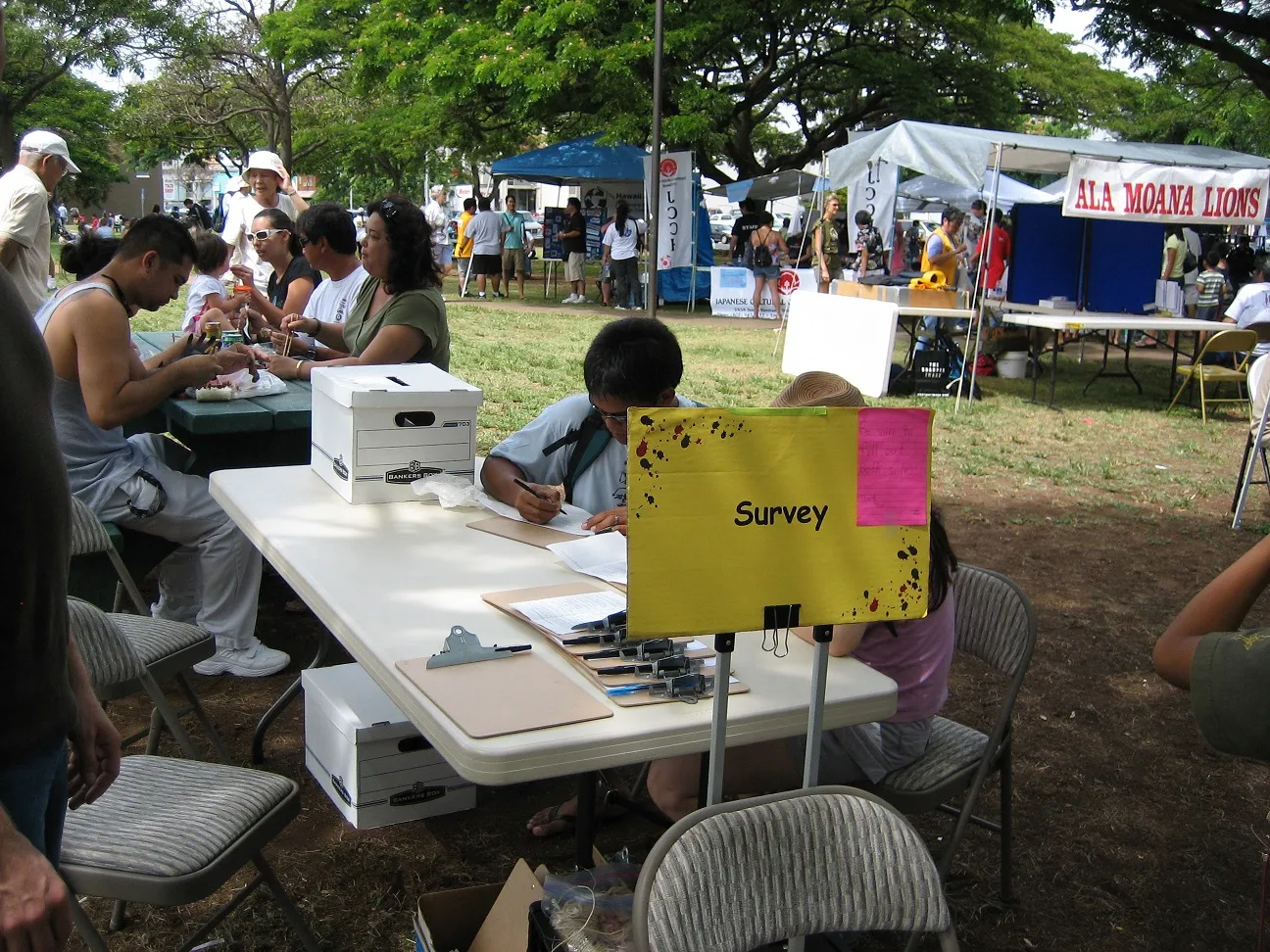
Community-based planning for sustainable community-based economic development and asset building, including the designing and facilitating of community engagement and participation processes, building coalitions and networks, and developing community-based institutions. This work includes:
- Hawaiʻi County Community Development Plans — A partnership with the Hawaiʻi County Office of Planning, HACBED and Islander Institute assisted with the development of region specific Community Development Plans (CDPs) for Kaʻū and Hāmākua. The CDPs were intended to serve as the forum for community input into establishing County policy at the regional level and coordinating the delivery of County services to the community.
- Transit Oriented Community-Based Economic Development (TOCBED) — A partnership between HACBED, the University of Hawaiʻi’s Department of Urban & Regional Planning and Social Policy Center, and Plan Pacific (a planning consulting firm) to research previous plans and studies, contact area businesses and residents, and conduct surveys and facilitate community forums to explore broad-based “grassroots” planning models to assist three urban neighborhoods – Central Kakaʻako, Ala Moana-Sheridan-Kaheka, and McCully-Mōʻiliʻili to [1] articulate preferred scenarios for social and economic revitalization; [2] build these communities’ capacity to implement a strategic plan for their preferred future; and [3] assist State and county policymakers in developing a master plan to integrate transit-development opportunities with state-federal and local programs that address the needs of urban communities with a strong ethnic-historic heritage, and capitalize on public institutional assets. The work resulted in a report, Honolulu’s Cultural Heritage Corridor: A Strategic Vision & Development Framework For Central Kakaʻako, Ala Moana-Sheridan-Kaheka, & McCully-Mōʻiliʻili that provided recommendations for a [a] governance structure and [b] mitigating impacts and addressing development opportunities through community based initiatives. The initiative was funded by the City & County of Honolulu and the State Legislature.
- Lanaians For Sensible Growth — Provide process design, research, facilitation, and technical support to a community-based planning initiative to establish a development framework for the Lāna‘i community that will be used to negotiate a community benefits agreement and assess future planning and development efforts on the island. The process included use of ‘ohana dialogue sessions (family to family talk story sessions using a popular education methodology), Speak Outs, a door to door survey, and community gatherings.
- Empower Oʻahu — Designed and conducted community and regional strategic planning processes in 9 communities as part of the City & County of Honolulu’s federal HUD Empowerment Zone application process in 1998 and 2000. HACBED then served as fiscal sponsor and management agent for the implementation phase of this island-wide initiative to create opportunities for residents in low/moderate income communities on Oʻahu. The 9 communities are investing and leveraging $4 million in City/federal resources for community development.
- Workforce Development Community Audits — A study conducted for the Oʻahu Workforce Investment Board to promote strategic workforce investment decisions through the analysis of areas on Oʻahu where residents would benefit from investments of OWIB resources and activities; high growth industries that can employ new workers and support entrepreneurship; and industries that can provide high wages and career ladders to create upward mobility for low income individuals.
- State Office of Youth Services — In partnership with UH-DURP, HACBED worked with OYS on a two-year education, training, and facilitation project to expand the capacity of the agency to plan and establish a community-building approach to the development of a continuum of youth services statewide. Part of this effort is to develop a strategic plan for the Office within the context of this strategic focus.
- Community Visioning in FSM & Palau — Through a contract with The Nature Conservancy, the Governors’ Association of Palau, the Palau Conservation Society, and the Conservation Society of Pohnpei, HACBED provided trainings and technical assistance for officials from federal, state, and municipal governments, NGOs, and traditional leaders on community visioning for sustainable development.
Finance and Fund Development
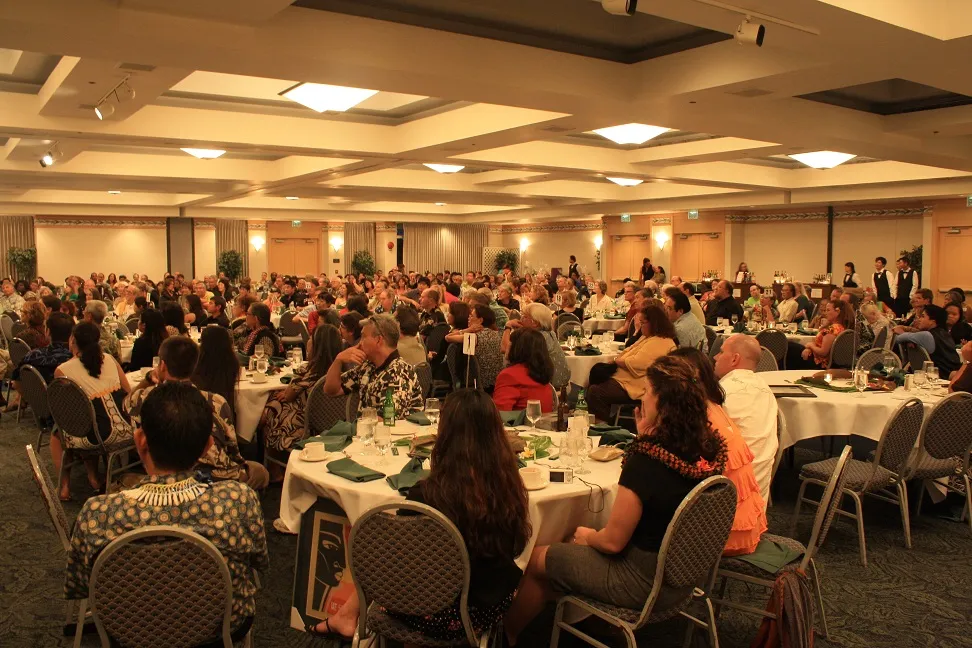
Providing trainings and technical assistance to assist low-income communities and non-profit community based economic development (CBED) organizations in developing viable financial and funding strategies to plan and implement their community and economic development ventures (projects, programs, and businesses). This work includes:
- City & County Of Honolulu: Community Revitalization Project — Conducted the community revitalization project under contract with the City & County of Honolulu to design and establish the City’s Section 108 Loan Program.
- DBEDT’s CBED Program — HACBED’s founders initiated and catalyzed establishment of a CBED grant, loan, and technical assistance program within the State DBEDT.
- ABC Fund — The Agenda for Building Community Fund, a hui of local private funders, provided non-traditional multi-year funding to 5 comprehensive community change initiatives on 3 islands. HACBED provided technical assistance to the Fund and its grantees.
- Hawaiʻi Community Loan Fund — HACBED established this community development financial institution that was the first certified CDFI that focused on community-based economic development.

